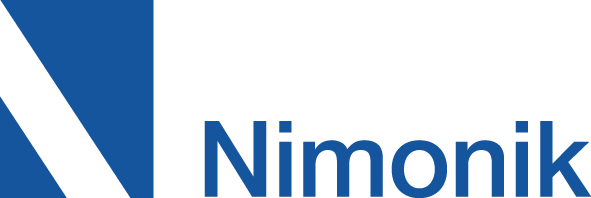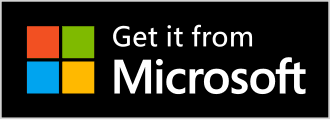By: Cheryl Wong
Nimonik monitors regulations and standards across 75+ countries and 600+ jurisdictions — the list below highlights recent impactful changes. Descriptions with an asterisk (*) were generated with Nimonik’s artificial intelligence tools.
Discover how we can help you track regulatory changes for the specific regions, countries, or jurisdictions that impact your operations. Send us a request for more information and we will contact you shortly.
- Canada – Ontario
- United States – Federal
- United States – Illinois
- United States – New Jersey
- United States – Washington
- European Union
- Australia
Canada – Ontario
Amended Document – Blue Box
Amending Document – Amending O. Reg. 391/21 (Blue Box)
First Effective Date: 3 September 2025
Industry Sector: General Industry
The change notably—
- maintains “current recovery targets for paper, glass, metal, and rigid plastic, and [defers] target increases until 2032”;
- introduces phased “recovery targets for flexible plastics, beginning at 10% in 2026–27, rising to 15% in 2028–31, and reaching 25% from 2032 onward”;
- removes “the “away from home” requirement for beverage containers, and [defers] target increase to 2032″;
- requires “best efforts” to “meet targets in 2026 and 2027”;
- requires “all collected materials to be sent to a registered processor”;
- requires “PROs (Producer Responsibility Organizations) and processors to submit a report to [the] RPRA (Resource Productivity and Recovery Authority) in 2027 on diversion performance to assess progress”;
- defers “collection from multi-residential buildings, schools, and specified long-term care homes and retirement homes that did not previously receive municipal Blue Box service until 2031”;
- removes “the requirement to expand collection in public spaces”;
- allows “up to 15% of a producer’s management obligation to be met through energy recovery from residuals of the recovery process, in limited circumstances”; and
- clarifies “technical requirements”.
More information about the update, including any additional effective dates, is available here and here.
United States – Federal
Amended Document – 15 USC 41 Consumer Credit Protection
Amending Document – Homebuyers Privacy Protection Act
First Effective Date: 4 March 2026
Industry Sector: General Industry, Office Spaces, Building Management and Maintenance
According to the government, the change notably “prevent[s] consumer reporting agencies from furnishing consumer reports under certain circumstances, and for other purposes”.
United States – Illinois
Amended Document – IAC Part 35-733 Standards for Universal Waste Management
Amending Document – IAC Part 35-733 Standards for Universal Waste Management 2025-09-12 Amendments
First Effective Date: 27 August 2025
Industry Sector: General Industry, Office Spaces, Building Management and Maintenance
This change is part of a series of amendments to “add ‘paint and paint-related waste’ (PPRW) to list of universal wastes and to make PPRW subject to the requirements of other designated universal wastes.” Particularly to this rule, the amendment is “to incorporate PPRW as a universal waste”.
United States – New Jersey
New Principal Document – NJAC Chapter 7-26K Food Waste Recycling
First Effective Date: 2 September 2025
Industry Sector: General Industry, Healthcare Industry, Other
According to the government, this document prescribes recordkeeping and reporting requirements for both authorized food waste recycling facilities and large food waste generators. Authorized food waste recycling facilities will also be subject to provisions covering economic benefits for municipalities. The rules also include waiver provisions for source separation and recycling and enforcement provisions.
Amended Document – NJAC Chapter 7-10 Safe Drinking Water Act
Amending Document – NJAC Chapter 7-10 Safe Drinking Water Act; NJAC Chapter 7-19 Water Supply Allocation Permits 2025-09-15 Amendments
First Effective Date: 15 September 2025
Industry Sector: Utilities and Communications
This change is part of a series of amendments to “implement requirements regarding the operation and management of a public community water system in accordance with the Water Quality Accountability Act (WQAA), N.J.S.A. 58:31-3 et seq.” According to the government, “these adopted requirements relate to the technical, managerial, and financial capacity of public community water systems, civil administrative penalties for violations of the WQAA, valve and fire hydrant inspections, water loss audits, asset management programs, storage requirements, and administrative changes.”
United States – Washington
New Principal Document – WAC Chapter 173-339 Cosmetic Products Restrictions
First Effective Date: 28 September 2025
Industry Sector: Chemical Industry, Other
This document affects cosmetics manufacturers, distributors, retailers, and cosmetology businesses, and it applies to cosmetic products used in services, sold online, and sold in physical stores. It restricts the manufacture, sale, and distribution of cosmetic products in Washington state that contain intentionally added formaldehyde and chemicals that release formaldehyde. It also identifies various formaldehyde-releasing chemicals that are restricted by rule when intentionally added to cosmetic products.
European Union
Amended Document – Directive 2008/98/EC of the European Parliament and of the Council of 19 November 2008 on waste and repealing certain Directives
Amending Document – Directive (EU) 2025/1892 of the European Parliament and of the Council of 10 September 2025 amending Directive 2008/98/EC on waste (Text with EEA relevance)
First Effective Date: 16 October 2025
Industry Sector: General Industry, Office Spaces, Building Management and Maintenance
The changes notably improve the waste management framework in textiles and food sectors by:
- establishing new rules for the prevention of food waste generation along the entire food supply chain, such as the establishment of specific food waste prevention programs by Member States;
- introducing several new definitions related to textile, textile-related or footwear products, and the relevant extended producer responsibility obligations; and
- introducing a specific extended producer responsibility scheme for textiles, such as the establishment of a register of producers of textile, textile-related or footwear products, the collaboration with producer responsibility organizations, and the assurance of access to separate collection systems of waste.
Australia
Amended Document – National Greenhouse and Energy Reporting (Measurement) Determination 2008
Amending Document – National Greenhouse and Energy Reporting (Measurement) Amendment (2025 Update) Determination 2025
First Effective Date: 1 July 2025
Industry Sector: General Industry, Building Management and Maintenance
According to the Australian government, this change notably introduces market-based reporting of emissions from consumption of biomethane and hydrogen.
Regarding fugitive emissions from oil and natural gas operations, the change notably:
- updates the emissions factors used in Method 1 and Method 2A for gas flared during oil and natural gas operations;
- updates the carbon dioxide and methane emission factors using gas combustion stoichiometry to correct (a) an unintentional inconsistency between oil sector flaring and gas sector flaring activities and (b) minor rounding errors in previous iterations of the Measurement Determination;
- updates the nitrous oxide emission factor to correct a minor rounding error in previous iterations of the Measurement Determination;
- makes Method 2B for estimating fugitive emissions from gas flared during natural gas production available to natural gas transmission and distribution facilities to expand access to facility-specific higher-order methods;
- corrects an error in the contextual data to be reported when Method 2B is used, specifically to replace references to “tonnes of flared crude oil and liquids” with “tonnes and gigajoules of flared gas”; and
- adds the requirement to report the “tonnes of flared gas” when Methods 2, 2A, or 3 are used to estimate fugitive emissions from flaring during natural gas operations, supporting Australia’s domestic and international emissions reporting obligations and NGER scheme compliance.
Regarding Scope 2 emissions from consumption of electricity, the change notably makes a routine annual update of emission factors, and also updates the market-based method by:
- adding requirements for consistent use of the market-based method across all facilities within a controlling corporation’s group;
- clarifying the permitted timing for surrender of renewable energy certificates used in calculating market-based emissions; and
- adds new reporting requirements under Schedule 4, specifically (a) RET accreditation codes for power stations within the facility and (b) surrendering ID numbers of surrendered certificates.
Regarding waste, the change notably:
- enables NGER reports to account for abatement from diversion of biosolids to biochar production;
- makes a minor update to the N2O emission factor for effluent discharged to estuaries; and
- makes other minor technical updates to improve clarity and operation of the scheme.
Past months’ top changes are available here: August 2025, July 2025, June 2025, May 2025, April 2025, March 2025
Manage All Your Requirements in One Place
Nimonik helps organizations manage requirements, standards, regulations, and company documents, leading to less environmental damage, better worker safety, and higher quality products.
Document-Level Compliance Obligations
- Access over 1,250,000 regulations, standards, and guidelines for global jurisdictions on our easy-to-use platform, NimonikApp.
- Receive alerts when applicable documents change or new ones get introduced.
Clause-Level Compliance Obligations
- Access specific requirements in over 1,2500,000 regulations, standards and guidelines for global jurisdictions on our easy-to-use software, NimonikApp.
- Receive alerts when the specific applicable requirements change or new ones get introduced.
- Use the specific requirements as audit protocols to assess your compliance.
Audit and Inspection Software
- Assess your compliance to industry standards, corporate policies, customer requests, or any other set of requirements with our robust mobile and web auditing app, Nimonik Audit.
We promise:
- Accuracy and comprehensiveness of our regulatory content
- Rapid publication of regulatory changes
- Easy-to-use software
- Exceptional customer support
- State-of-the-art IT security
Contact us to discuss how you can manage all your requirements in one place.







